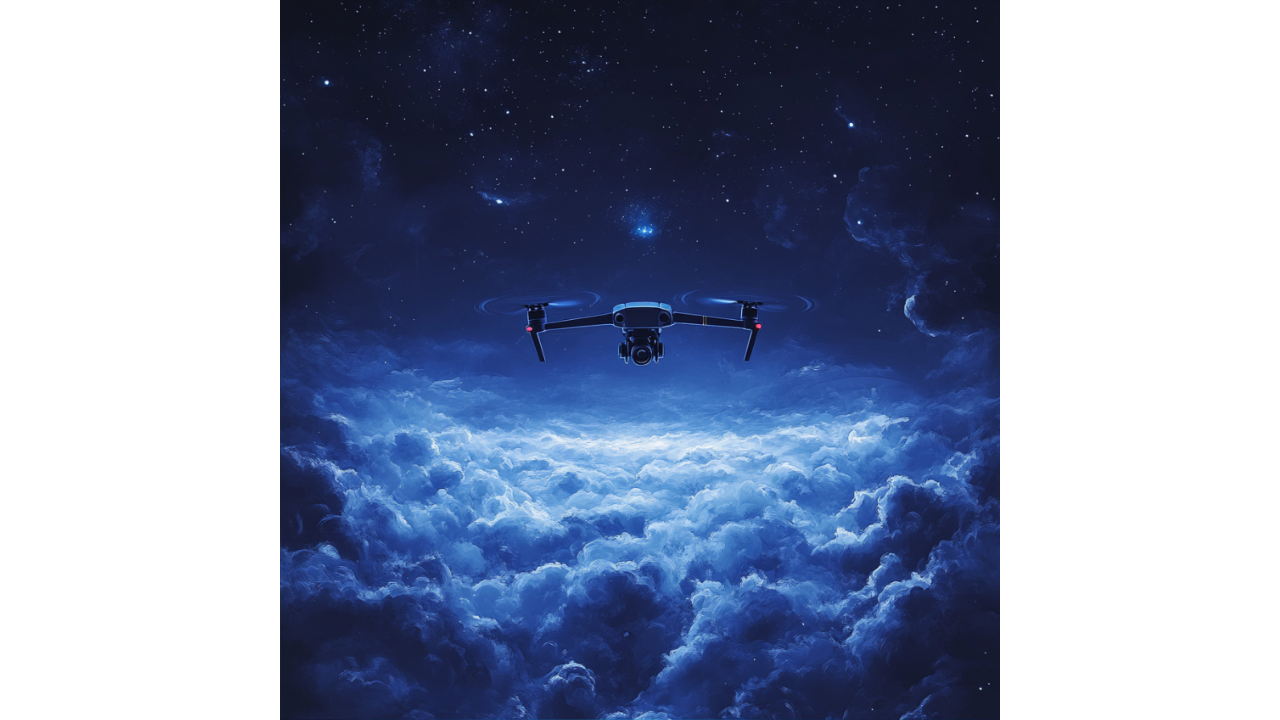Timbaland's AI Music Project (Fantasy or Fail?)
We're living through music's iPhone moment. Just as smartphones didn't just improve phones but created entirely new industries, AI isn't simply...
-3.png)
Remember when musicians made money from music? Quaint concept, right? Like believing in unicorns or thinking Facebook cares about your privacy. The Velvet Sundown saga—where an AI-generated band racked up over 1 million Spotify streams before admitting they were synthetic—is just the latest nail in the coffin of a profession that's been systematically dismantled by Silicon Valley's race to the bottom.
Here's the uncomfortable truth that the industry doesn't want you to face: being a musician in 2025 means being everything except a musician. You're a social media manager, a brand strategist, a merchandising entrepreneur, a touring logistics coordinator, and occasionally—if you're lucky—someone who gets to play music.
The Mathematics of Musical Poverty
Let's start with some soul-crushing numbers. Spotify pays artists between $0.003 and $0.005 per stream, with the average hovering around $0.004. To make $1,000—barely enough to cover rent in most cities—you need 250,000 streams. To make minimum wage ($15,080 annually in the US), you need 3.77 million streams. To make a living wage of $50,000? Try 12.5 million streams.
Meanwhile, selling one $35 band t-shirt is equivalent to almost 9,000 streams. Think about that for a moment. A piece of cotton with your logo printed on it generates more revenue than 9,000 people actively choosing to listen to your life's work.
The average artist made $10,000 per show in gross merchandise sales in 2023, while 61% of artists on Spotify made less than that from a year's worth of streaming royalties. We've reached a point where hawking t-shirts at a dive bar is more lucrative than having your music heard by hundreds of thousands of people.
@aeyespybywinsome What is the future of music? #music #aimusic
♬ original sound - AEyeSpy
Now add AI to this dystopian mix. AI-generated music is expected to boost overall music industry revenue by 17.2% within the next year, but here's the kicker: none of that money goes to human artists. The AI music market is expected to hit $6.2 billion by 2025 and grow to $38.7 billion by 2033.
Studies suggest that by 2028, 23% of music creators' revenue could be at risk due to generative AI, with potential losses reaching $519 million. The Goldmedia study is even more alarming: over the next five years, music creators could lose up to €10 billion, with an expected annual loss of €4 billion in 2028.
But here's the most damning statistic: 82% of listeners find it difficult to tell the difference between music created by AI and pieces composed by humans. We've spent decades training audiences to consume music as background noise, and now we're surprised they can't distinguish between human creativity and algorithmic output?
The Velvet Sundown case perfectly encapsulates this nightmare. A synthetic band, created with zero human musicianship, can generate millions of streams while real artists struggle to reach thousands. Deezer recently told the Guardian that up to seven out of 10 streams of AI-generated music on the platform are fraudulent, suggesting that even the AI music that's succeeding is being artificially inflated.
So how do musicians actually make money in 2025? Spoiler alert: not by making music. They've become multi-platform entrepreneurs who happen to play instruments. Here's the modern musician's revenue portfolio:
Live Performance Hustle: The average artist made $10K per show in Gross Merchandise Sales in 2023. Notice that's merchandise sales, not ticket sales. You're not getting paid to perform; you're getting paid to sell stuff while performing.
Social Media Content Creation: Musicians today are creating catchy snippets of their songs specifically designed for TikTok's short-form video format. You're not a musician; you're a content creator who sometimes makes music-adjacent content.
Sync Licensing Lottery: Sync deals can be a big payday upfront, plus you might get ongoing royalties. But landing a sync deal is like winning the lottery—possible, but not a sustainable business model.
Brand Partnerships and Sponsorships: Brands are always on the lookout for influencers with engaged followings, and musicians fit the bill perfectly. You're not an artist; you're a walking billboard with a Spotify account.
Teaching and Workshops: Teaching music lessons online or in-person offers a reliable income stream for musicians. Congratulations, you've gone from being a musician to being a music teacher, which is a completely different profession.
Crowdfunding and Fan Subscriptions: Crowdfunding platforms like Kickstarter and Patreon enable direct fan support and engagement. You're not selling music; you're selling access to yourself.
The streaming economy has created a perverse incentive structure where artists are paid in "exposure" rather than actual money. 74% of internet users have turned to AI to discover new music, meaning even music discovery—traditionally the domain of human curators—has been automated.
Over 50% of the top 20 global hits on music streaming platforms are influenced by AI recommendations. The algorithms that determine what music gets heard are the same algorithms that are replacing the musicians who create that music.
Meanwhile, tracks on Spotify must have reached at least 1,000 streams in the previous 12 months to generate royalties. You literally need to convince 1,000 people to listen to your song for at least 30 seconds just to qualify for the privilege of earning $3-5.
The music industry's response to AI has been to call for "clear labeling" of AI-generated content, as if that solves the fundamental problem. Roberto Neri, the chief executive of the Ivors Academy, said: "AI-generated bands like Velvet Sundown that are reaching big audiences without involving human creators raise serious concerns around transparency, authorship and consent."
But here's the thing: if 82% of listeners can't tell the difference between AI and human-created music, why would labeling matter? We've created a market where authenticity is irrelevant because audiences have been trained to consume music as a commodity rather than as art.
No longer must you practice your instrument and learn music theory for years. Now models can be given prompts such as, write a rock song with a catchy chorus, and it can be developed within minutes. The barriers to entry have been eliminated, but so has the value of the skill itself.
The harsh reality is that music has become a loss leader for everything else. You make music to sell t-shirts, to book live shows, to build an audience that you can monetize through other means. The music itself? That's just marketing for your brand.
65% of musicians feel the risks of AI outweigh the benefits, and 82% worry it could threaten their ability to earn a living from their music. But the damage is already done. The industry has spent two decades training audiences to expect music for free, and now AI is providing exactly that—free music, no human labor required.
The Velvet Sundown case isn't an anomaly; it's a preview. We're entering an era where synthetic bands can generate millions of streams while real musicians struggle to pay rent. The music industry isn't broken—it's working exactly as designed. It's just designed to benefit platforms, not artists.
So here's to the death of the music dream. Pour one out for the profession that used to exist, when musicians made money from music instead of selling everything around it. The future belongs to AI bands and human salespeople who occasionally play instruments.
Welcome to the post-streaming hustle economy. Your music is free, but your t-shirts cost $35.
Tired of competing with AI bands for streaming crumbs? Our growth experts at Winsome Marketing help musicians build sustainable revenue streams that don't depend on Silicon Valley's whims. Let's turn your music into a business that actually pays the bills.
-2.png)
We're living through music's iPhone moment. Just as smartphones didn't just improve phones but created entirely new industries, AI isn't simply...

We've reached the point in AI development where leaked memos carry more narrative weight than actual product announcements. A document currently...

The most dangerous person in a boardroom isn't the one plotting corporate espionage—it's the one who genuinely believes their surveillance empire...